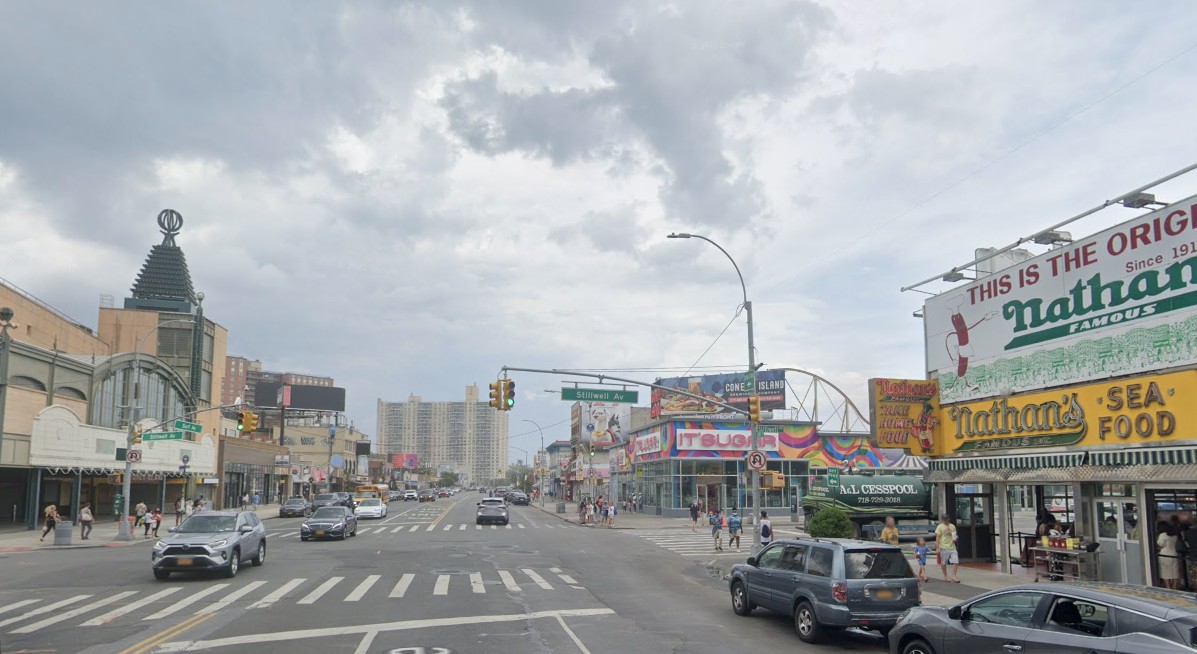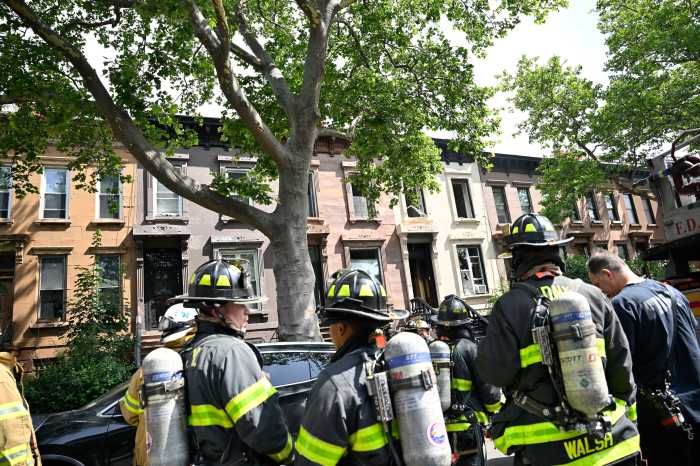Who works for who?
If a Prospect Park Alliance employee is injured on the job, should the city pay?
That’s the question raised in a recent legal squabble over compensation for serious injuries a Prospect Park Alliance employee sustained in an accident involving a golf cart and a goal post.
Plaintiff Johnny Broadus decided to sue the city, since the cart he was operating was owned by the city and that his injuries took place inside Prospect Park, which the city owns.
He claims that he was placing “No trespassing” signs in the soccer field in the Parade Grounds when he lost control of the cart and slammed into the goal post.
But city officials say that Broadus couldn’t sue, because he was, in their opinion, a city employee – and therefore barred from taking the city to court through a worker’s compensation clause.
Yet Broadus said he can sue, because he was an employee of the Prospect Park Alliance, not the city.
City officials countered, saying that while the Prospect Park Alliance is a separate entity, Broadus was working in the park with park property and reportedly under the supervision of a park employee the entire time.
Court officials said the two parties went to court back in 2007, but the jury was unable to reach a verdict, especially when city attorneys dropped the “Broadus works for us” bomb.
Now that the second trial is about to begin, city attorneys asked that the case be dismissed outright over Broadus’ odd “special employee” status.
During a decision handed down on July 21, Judge Herbert Kramer allowed the city to amend their defense to include their special employee argument, but would not dismiss the case outright, leaving another jury to decide just who Broadus works for.
Sex trafficker sentenced
A 61-year-old woman responsible for leading a prostitution ring in which young Mexican women were forced into sexual slavery was sentenced to a life behind bars this week.
Carreto Valencia admitted to spearheading the ring with her sons, and for “recruiting young, uneducated women and girls from impoverished areas of Mexico and used or approved of a combination of deception, fraud, rape, forced abortion, threats and physical violence to compel them into prostitution in brothers throughout the New York City metropolitan area, including Queens and Brooklyn,” officials from the U.S. Attorney’s office said Tuesday.
While her sons led the operation stateside, Valencia reaped the rewards of the plan.
She reportedly received wire transfers of money from New York, “fully aware that they were the proceeds of acts of prostitution performed by women who had been recruited and smuggled into the United States by her sons,” prosecutors said.
Valencia’s sentencing was the last piece of the ongoing investigation, according to officials.
Back in 2006, her sons, Jose Flores Carreto and Gerardo Flores Carreto, as well as a third co-defendant identified as Daniel Perez, were all given life sentences following their guilty plea in 2005.
“Sex traffickers prey on the vulnerabilities of their victims to force them into lives of servitude and rob them of their human dignity,” U.S. Attorney Benton J. Campbell said in a statement. “We will hold accountable those persons who subject other human beings to conditions of servitude in order to line their own pockets.”
Wedded bliss trumps slip and fall
These days, lawsuits against the city seem to be a family affair, even when the family is fractured.
Case in point: a judge ruled recently that a woman could sue the city for financial compensation for injuries her former husband sustained, even though the two weren’t really married when he fell down a borough housing project staircase.
Judge Gloria Dabiri denied the city’s motion to dismiss a lawsuit filed against the New York City Housing Authority by plaintiff Cecilio Perez’s former wife.
Raquel Perez is seeking compensation for “loss of services, society and consortium” after caring for her estranged husband after he slipped on vomit in a stairwell landing back in January, 2003 and tumbled down a flight of stairs, injuring his foot.
While city officials are prepared to go to court against Cecilio, who said that he was seriously injured and lost work because the city didn’t clean the Boerum Street building stairwells, they claimed that the suit filed by his wife was ludicrous, because the two weren’t really married at the time of the accident.
Both Cecilio and Raquel admitted that they had married in 1967, but, because of marital difficulties, had not lived together for at least seven years before the painful puke incident.
Yet love can blossom in the strangest of circumstances.
According to their own statements, Cecilio returned to Raquel’s apartment, which happened to be in the apartment complex he was injured, so “she could help him recuperate from his injuries.”
The plaintiffs said that since the accident, their relationship “has improved and they have had marital relations” – meaning they’re sweating up the sheets once again.
Judge Dabiri dismissed the motion because the city did not provide enough proof to show that the marriage was in shambles.
























